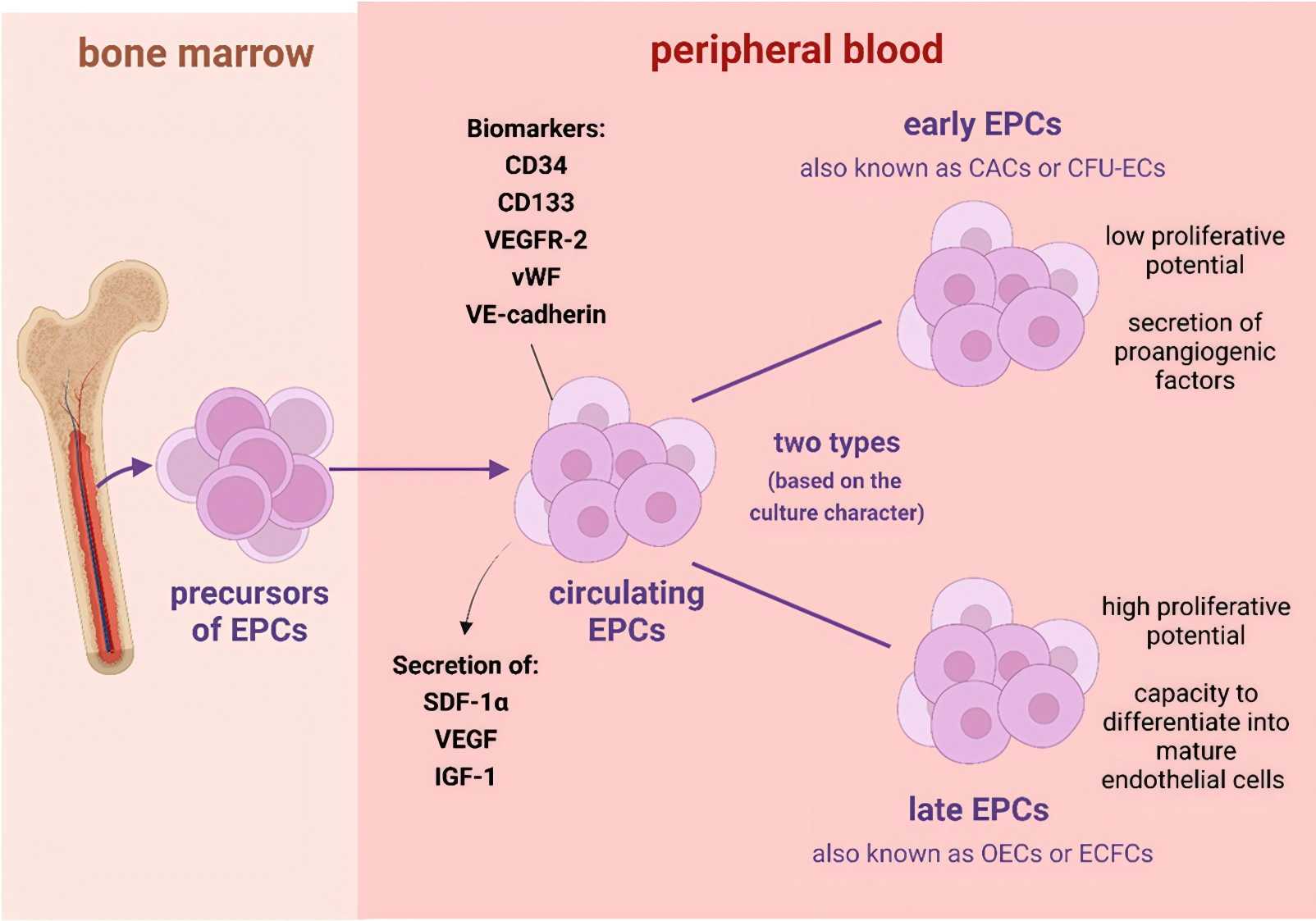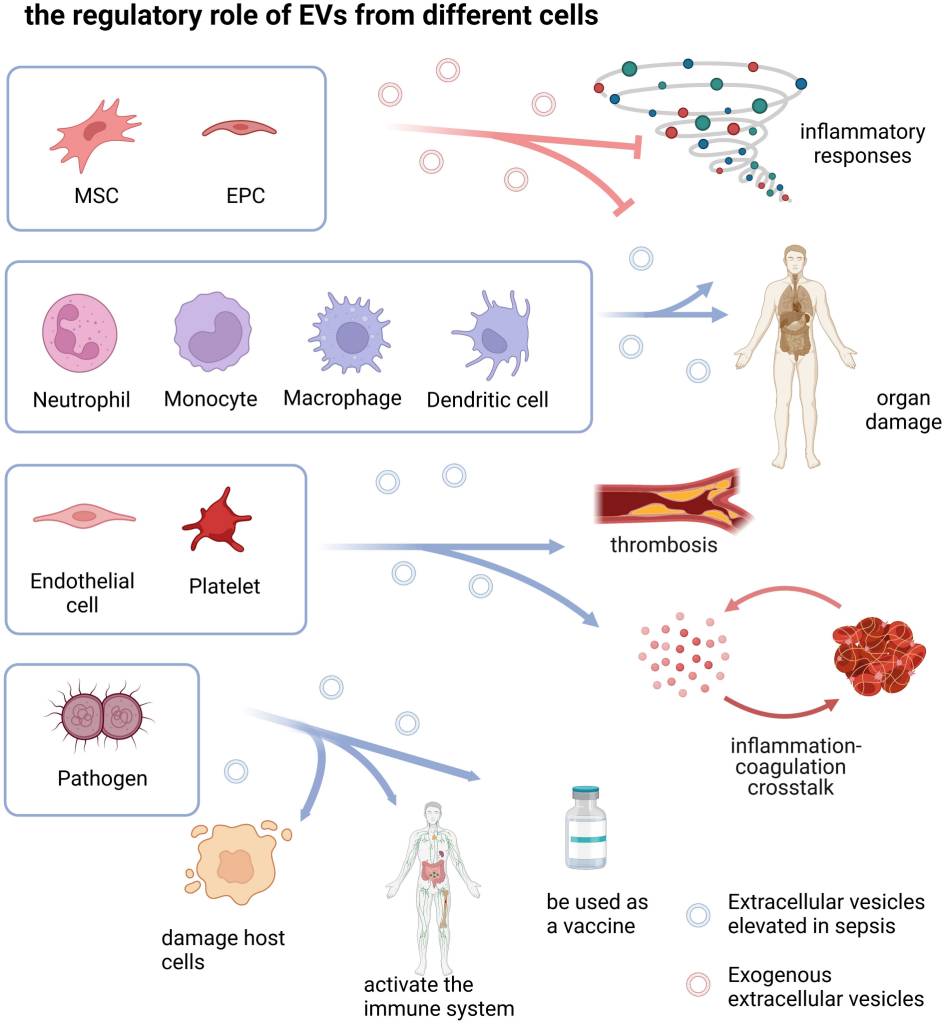As a preeminent contract antibody development company, Creative Biolabs offers high-quality in vitro diagnostic (IVD) antibody development services targeting a wide range of biomarkers. Here, we focus on the endothelial progenitor cell (cEPC) as a marker of sepsis. We are committed to providing the highest quality of custom services and products at the most reasonable prices.
Endothelial Progenitor Cells (EPCs)
Endothelial progenitor cell (or EPC) is a term that has been used for multiple different cell types which are involved in the regeneration of the endothelial lining of blood vessels. It can be isolated from circulating mononuclear cells, cord blood, and bone marrow. Generally, EPCs have been defined as circulating cells which express a diverse group of cell surface markers like those expressed by vascular endothelial cells, and adhere to endothelium at sites of hypoxia/ischemia, and thus be involved in new vessel formation. The circulating endothelial progenitor cells may play a role in ongoing endothelial repair. Particularly, EPCs may provide a circulating pool of cells that could form a cellular patch at the site of denuding injury or act as a cellular reservoir to substitute for dysfunctional endothelium. Additionally, there is an increasing understanding that EPCs also contribute to repairing in denuding injury, by extension of neighboring mature endothelial cells.
 Fig. 1 Characteristics of EPCs.1, 3
Fig. 1 Characteristics of EPCs.1, 3
The Role of EPCs in Sepsis
During sepsis and septic shock, an array of immunological events are initiated that modify endothelial function in the microcirculation, including endothelial swelling, deformation, and apoptosis with detachment from the vasculature. Subsequently, endothelial cells (EC) appear in the circulation. Simultaneous to these pathological processes, reconstitution of the endothelial layer is initiated which can occur by migration and proliferation of surrounding mature ECs or by recruitment of circulating endothelial progenitor cells (cEPCs) from the bone marrow. EPCs play an essential role not only in re-endothelialization after vascular damage, but also participate in the pathophysiological processes after severe inflammation. Lately, EPCs have been found to be increasingly mobilized during sepsis and this mobilization is related to the clinical outcome. Studies have also shown that the EPCs are present in small numbers in healthy individuals, and the numbers tend to elevate after vascular injury.
 Fig. 2 EPCs in sepsis.2, 3
Fig. 2 EPCs in sepsis.2, 3
Anti-EPC Antibody Development Services
Above all, EPC enumeration is likely to be a potential prognostic and diagnostic marker for the outcome in sepsis patients. With our versatile IVD platform, Creative Biolabs is proud to develop novel anti-EPC antibody from scratch to commercial IVD kit (we can also start with provided antibody candidates). Along with over a decade of rich experience in providing excellent custom services for IVD antibody discovery, our services can totally meet your special requirements.
If you are interested in our services, please feel free to contact us for more details.
References
- Rudnicka-Drożak, Ewa, et al. "Endothelial progenitor cells in neurovascular disorders—a comprehensive overview of the current state of knowledge." Biomedicines 10.10 (2022): 2616.
- Tian, Chang, et al. "Extracellular vesicles participate in the pathogenesis of sepsis." Frontiers in Cellular and Infection Microbiology 12 (2022): 1018692.
- under Open Access license cc BY 4.0. without modification.
For Research Use Only.